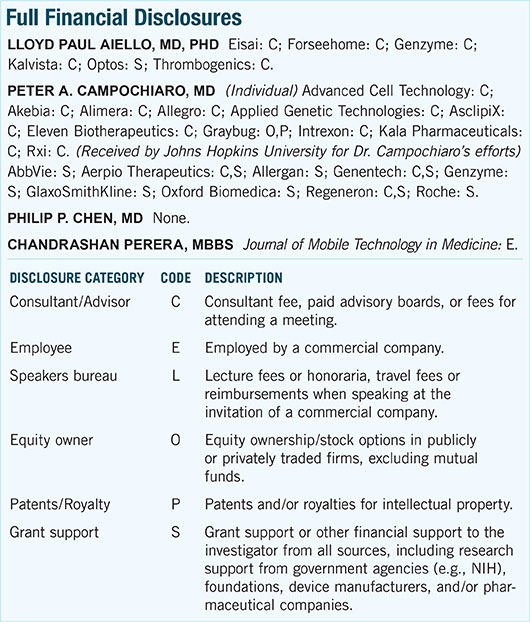Download PDF
In a striking sequel to a landmark diabetes study, researchers reported that early intensive glycemic control markedly lowers the long-term risk of having ocular surgery in patients with type 1 diabetes.1 Early intensive control was linked with a 48% reduction in the risk of any diabetes-related ocular surgery, a 37% reduction in all ocular procedures, and a 32% reduction in surgical costs over conventional diabetes therapy.
Original study. In the Diabetes Control and Complications Trial (DCCT), 711 patients were randomized to intensive glycemic control and 730 to conventional diabetes therapy between 1983 and 1989. In follow-up through 1993, the DCCT showed that 6.5 years of early intensive control to near-normal glycemia was associated with a 76% reduction in the onset of retinopathy and a 52% reduction in disease progression.
Continuing follow-up. At the end of DCCT, all patients, regardless of their original treatment assignment, were offered a rigorous intensive glycemic control regimen. Of the 1,441 DCCT patients, 1,375 enrolled in the follow-on Epidemiology of Diabetes Interventions and Complications (EDIC) study. Those who had undergone early intensive treatment continued to fare better for up to 27 years after the start of the original DCCT. They had fewer microvascular and macrovascular complications than those who had initially received conventional therapy. This result is attributable to “metabolic memory,” a phenomenon seen in diabetes, in which the early glycemic environment exerts a long-term effect on target organs, even after the glycemic status changes.
Dramatic drop. These results hinted at the impact early treatment might have on the incidence of ocular surgeries, self-reported by patients, said Lloyd Paul Aiello, MD, PhD, a member of the DCCT/EDIC writing committee. Dr. Aiello is at the Beetham Eye Institute, Joslin Diabetes Center, and Harvard Medical School in Boston. “But the magnitude of the effect we observed was dramatic, and this surprised many people.”
Early intensive control led to a substantial drop in the risk of ocular procedures related to diabetes. Cataract surgery was performed in 42 patients (5.9%) who had received intensive therapy during DCCT compared with 61 (8.4%) who had received conventional therapy. With regard to vitreoretinal procedures, 29 intensive-therapy patients (4.1%) versus 50 conventional-therapy patients (6.8%) underwent vitrectomy, retinal detachment surgery, or both. Other surgeries, including glaucoma surgery, showed a similar trend, said Dr. Aiello, but the number of procedures performed was too small to attain statistical significance.
Consistent results. In DCCT and EDIC, the researchers observed 2 cohorts—those with no retinopathy at baseline (primary cohort) and those with retinopathy at baseline (secondary cohort). “Not surprisingly, those starting with some retinopathy ended up with more complications and therefore more surgeries,” said Dr. Aiello. Even though the incidence of surgeries in the secondary cohort was about twice that of the primary cohort, he said that both groups showed benefits from early intensive control.
This is all good news for patients and physicians, said Dr. Aiello, but it places responsibility on both groups to work together diligently to achieve glycemic control as early as possible. Once a patient has been diagnosed with diabetes, the physician can use the results of this study to help motivate the patient to maintain tight control.
Although the study was confined to type 1 diabetes, said Dr. Aiello, there’s no reason to believe the results would be substantially different for type 2 diabetes. “We know from other studies that with type 2 diabetes, the risks of complications are reduced if you control blood sugar.”
—Annie Stuart
___________________________
1 The DCCT/EDIC Research Group. N Engl J Med. 2015;372(18):1722-1733.
___________________________
Relevant financial disclosures: Dr. Aiello—None.
For full disclosures and disclosure key, see below.

More from this month's News in Review